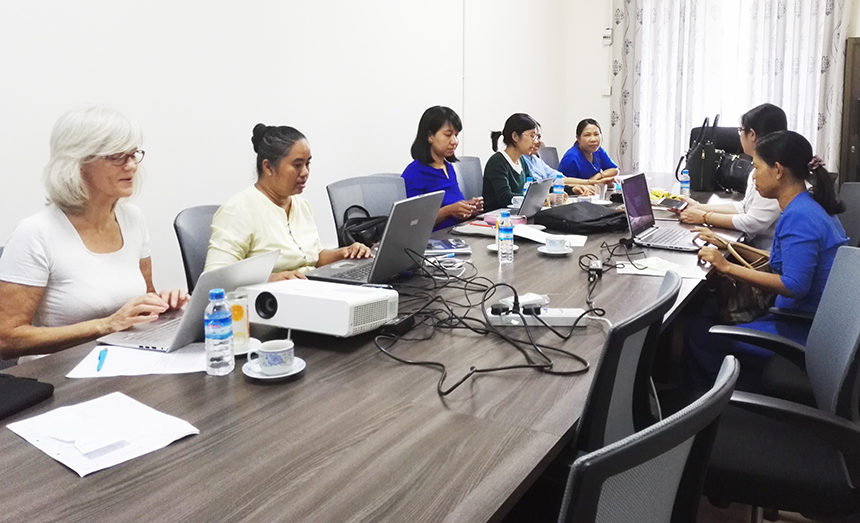The knowledge to grow sustainably

Finnish microbial ecologist Merja Itävaara, far left, visited Yangon University in Yangon, Myanmar, to aid the country’s scientific development. With her are officials from The Department of Research and Innovation, Ministry of Education; ALARM Ecological Laboratory; and Yangon University
Myanmar is rapidly transforming. After nearly a century of economic stagnation and decades of authoritarianism that ended only a few years ago, the country is in a development push, including both political and economic reforms.
But that growth comes at an environmental cost that Myanmar is ill-equipped to handle. So microbial ecologist Merja Itävaara of the VTT Technical Research Centre of Finland travelled there earlier this year – with support from the Elsevier Foundation-TWAS Sustainability Visiting Expert Programme – to work with local experts to build the nation’s environmental sciences.
“In Myanmar, there is a great need for environmental education and especially environmental microbiology and ecotoxicity, which are lacking,” said Itävaara. “There is also needed basic education in microbiology, and lab courses to train the students.”
The Elsevier Foundation-TWAS programme provides institutions in developing countries with outside contacts that could lead to strong, long-term links with experts in sustainability science. Itävaara is one of six researchers sponsored in 2017 for such a visit by the programme, aiming to form connections that could lead to further collaborations between European researchers and those from Myanmar. The programme focuses on research for sustainability, as well, in an effort to help developing countries achieve the United Nations’ Sustainable Development Goals and thrive in a way that will last deep into the future.
Visiting experts are expected to interact closely with faculty and students at the host institution to strengthen their work and help open new lines of research. That research is complimented by lectures and seminars, and discussion of future collaborations, and conduct research themselves. Any qualified scientist working in sustainability science is encouraged to apply.
- Read the full article on TWAS: “The knowledge to grow sustainably”, Sean Tracy, 9 May 2018

















